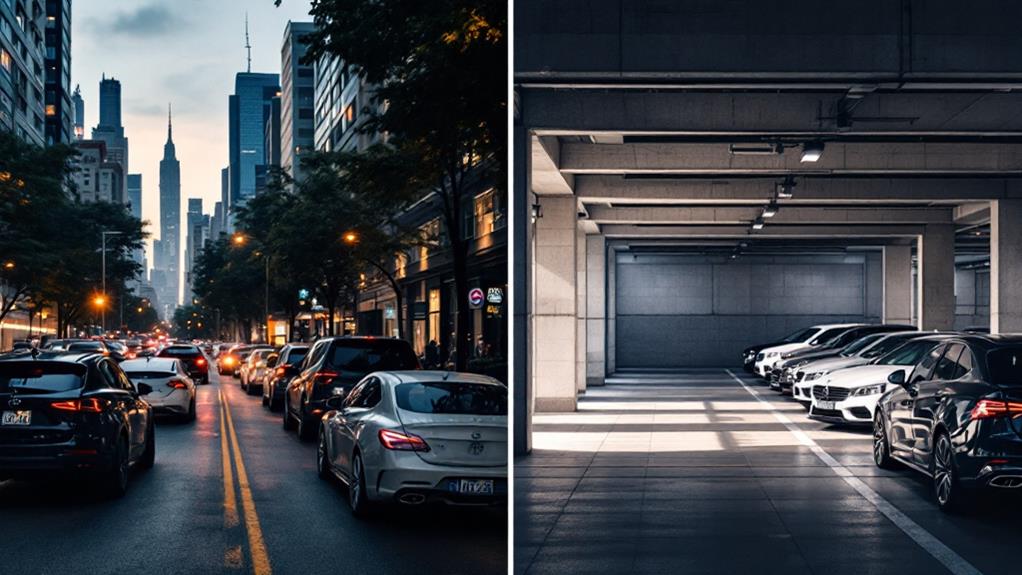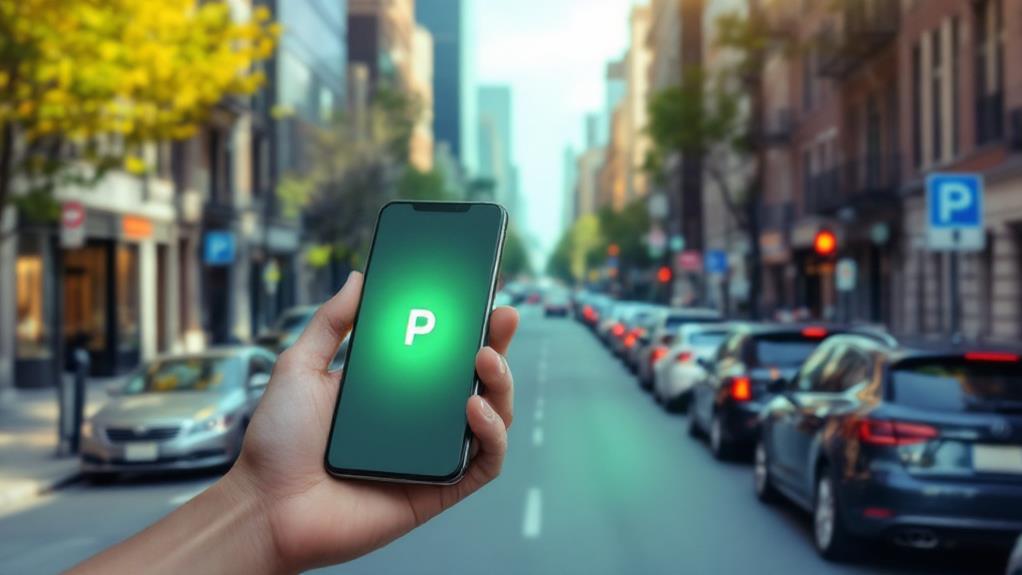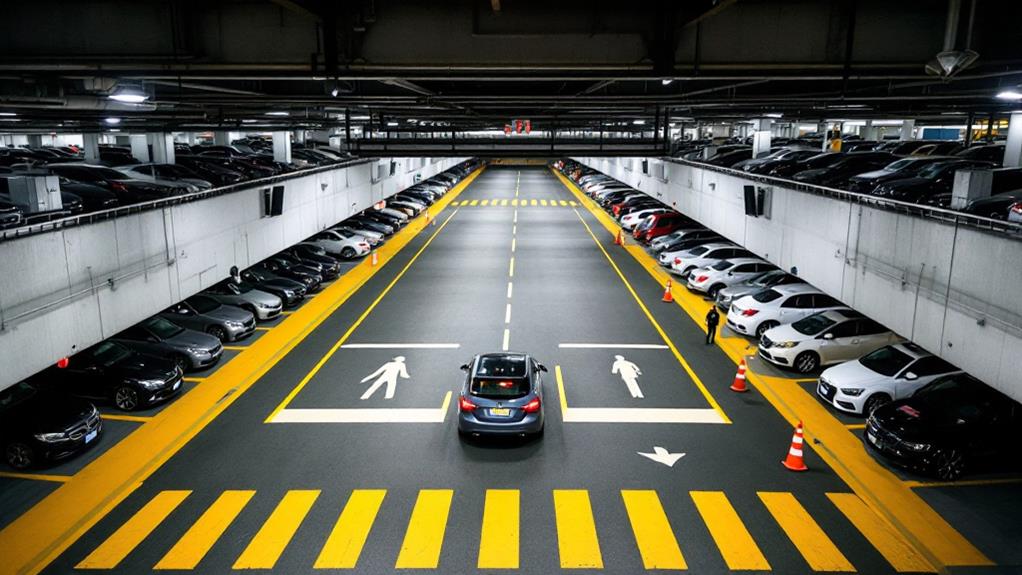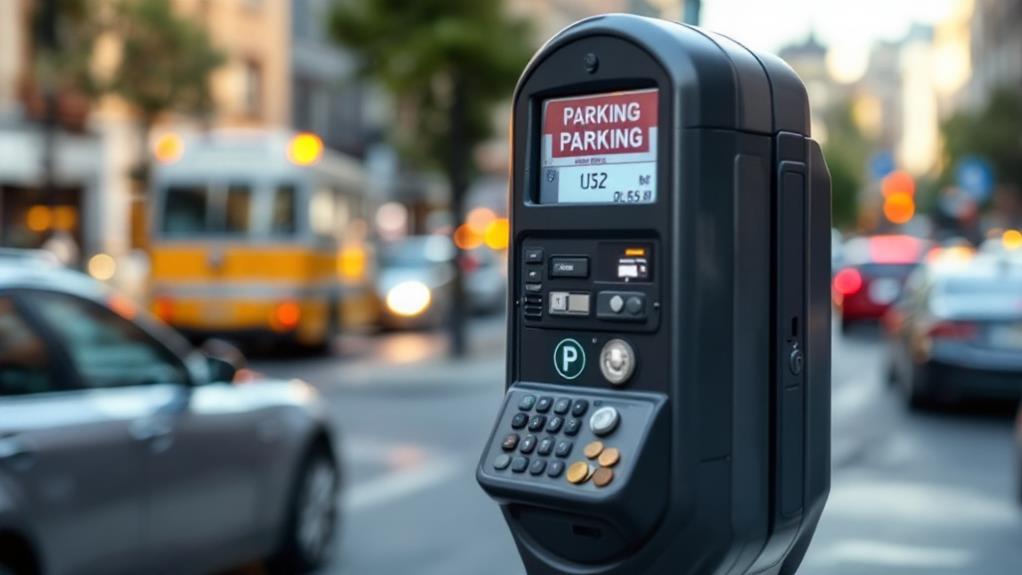How to Avoid Parking Tickets in Urban Areas
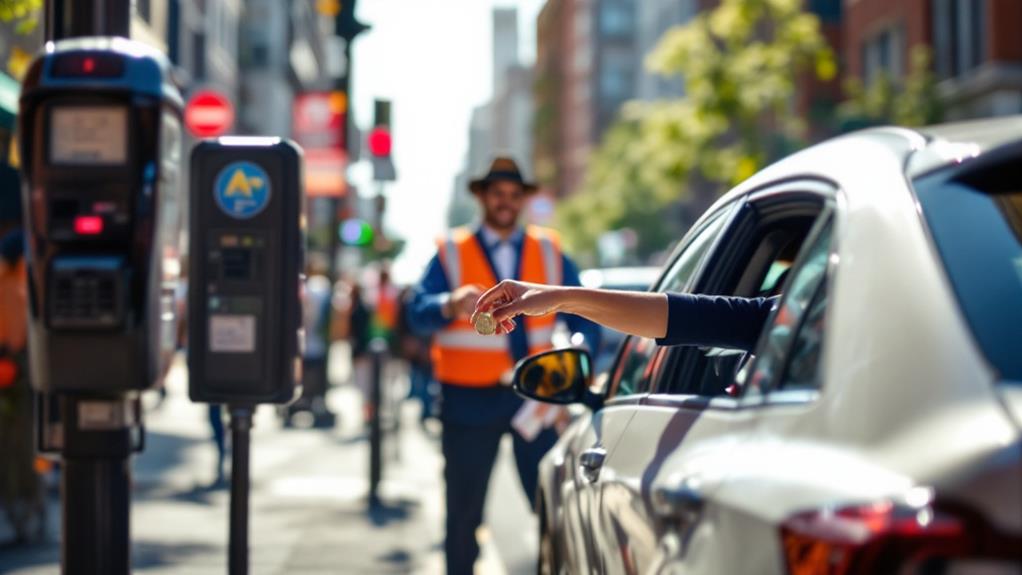
To avoid parking tickets in urban areas, you'll need to be proactive and vigilant. Research parking options in advance, including nearby garages and meter locations. Always pay close attention to signage, understanding time restrictions and zone regulations. Utilize employ parking meter apps for convenience and real-time updates. Familiarize yourself with parking inspector patterns and high-ticket areas. When possible, reserve spots through parking services to guarantee legal parking. Be aware of time limits and move your vehicle accordingly. Know your rights and the appeals process for wrongly issued tickets. By mastering commanding these strategies, you'll significantly considerably reduce your chances of facing those dreaded citations.
Research Parking Options in Advance
Often, the key to avoiding parking tickets in urban areas lies in thorough preparation. Researching parking options before you arrive at your destination can save you time, money, and stress. Start by conducting a quick Google search to gather information about available street parking or nearby garages. This will help you identify the closest and most affordable parking options, reducing the risk of rushing and making costly mistakes.
By planning ahead, you'll familiarize yourself with electronic payment methods and mobile apps that allow you to monitor meter time and add more remotely. This knowledge can prevent you from accidentally overstaying your allotted time and receiving a ticket. Additionally, researching in advance helps you avoid common pitfalls like parking in anti-gridlock zones, no stopping areas, or too close to fire hydrants.
Don't forget to look for parking signs carefully when you arrive. Understanding and following these signs is imperative to avoiding tickets. Consider using parking reservation services like ParkMobile to secure a spot in advance, taking the guesswork out of finding suitable parking. By investing a little time in research, you'll guarantee a smoother, ticket-free parking experience in urban areas.
Pay Attention to Signage
In light of the importance of signage in urban parking, paying close attention to posted signs is essential for avoiding tickets. You'll need to carefully read and obey all parking signs, including those for anti-gridlock zones, no stopping areas, and no standing zones. Remember, even if you're sitting in your car, parking in a no standing zone can still result in a ticket.
Parking regulations can be complex, so it's critical to understand the subtleties. For instance, if you're using a parking meter with multiple payment options and your preferred method isn't working, you must use an alternative payment method to avoid a citation. Be extra cautious when parking near law courts, as parking officers visiting to testify may check surrounding vehicles more frequently.
While it's always best to follow parking signs, you might have a slightly lower chance of getting a ticket between 12 p.m. and 1 p.m., as many parking inspectors take their lunch break during this time. However, this isn't a guarantee, so always prioritize following posted signs and regulations to confirm you're parking legally and safely.
Utilize Parking Meter Apps
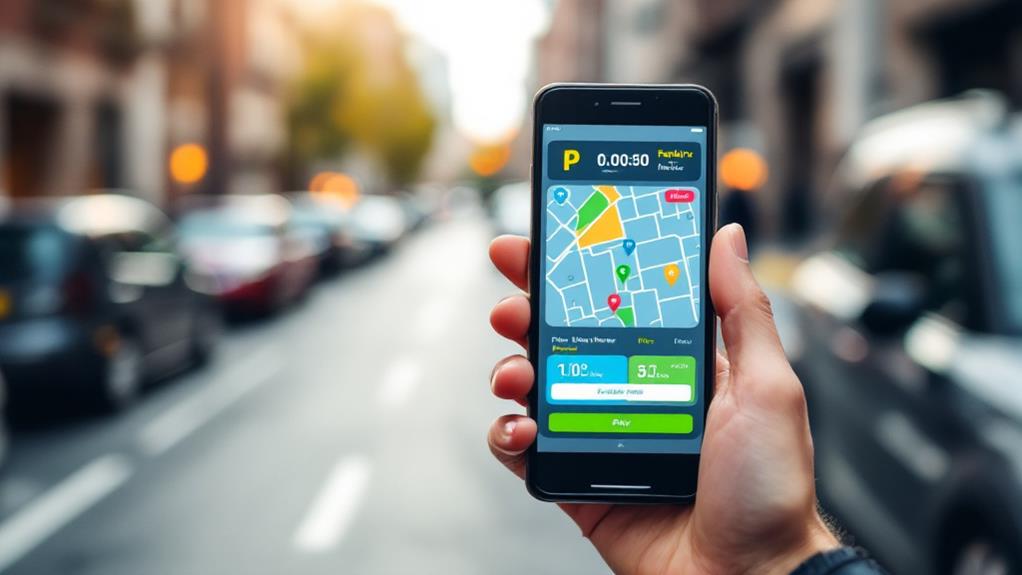
With the rise of smart city initiatives, parking meter apps have become an impactful development for urban drivers. These apps offer a convenient way to pay for and manage your parking sessions, significantly reducing the risk of receiving a ticket. By utilizing these digital tools, you can easily input your license plate number and select your desired parking duration, often with multiple payment options available.
One of the most valuable features of parking meter apps is the ability to remotely add time to your session. This means you won't have to hurry back to your car if your errand takes longer than expected. Many apps also provide real-time updates on your remaining parking time, guaranteeing you're always aware of when your meter is about to expire.
To make the most of parking meter apps and avoid citations, consider the following tips:
- Familiarize yourself with the specific app used in your city
- Take advantage of reservation features when available
- Set up notifications to remind you when your parking time is running low
- Keep your payment information up-to-date to ensure seamless transactions
Understand Parking Inspector Patterns
Parking inspectors, like clockwork, follow specific patterns in their rounds. Understanding these patterns can considerably reduce your chances of getting a ticket. Start by observing parking enforcement officers' schedules in areas you frequently visit. They often patrol at regular intervals, especially during peak hours or just before time limits expire.
Pay close attention to Zone Signs, as they indicate when parking restrictions are enforced. Many inspectors begin their shifts at the start of these restriction periods. You'll notice they tend to cover high-traffic areas first, gradually moving to less busy streets.
Keep track of the time you've parked and when inspectors typically pass by. If you're approaching the time limit, consider moving your car to a different block. Remember, some cities use digital systems that track how long you've been in a specific zone, so simply moving to a nearby spot may not be enough.
Lastly, be aware of common hotspots where tickets are frequently issued, such as near expired meters or in areas with confusing signage. By staying vigilant and understanding these patterns, you'll be better equipped to avoid costly parking tickets.
Reserve Spots When Possible
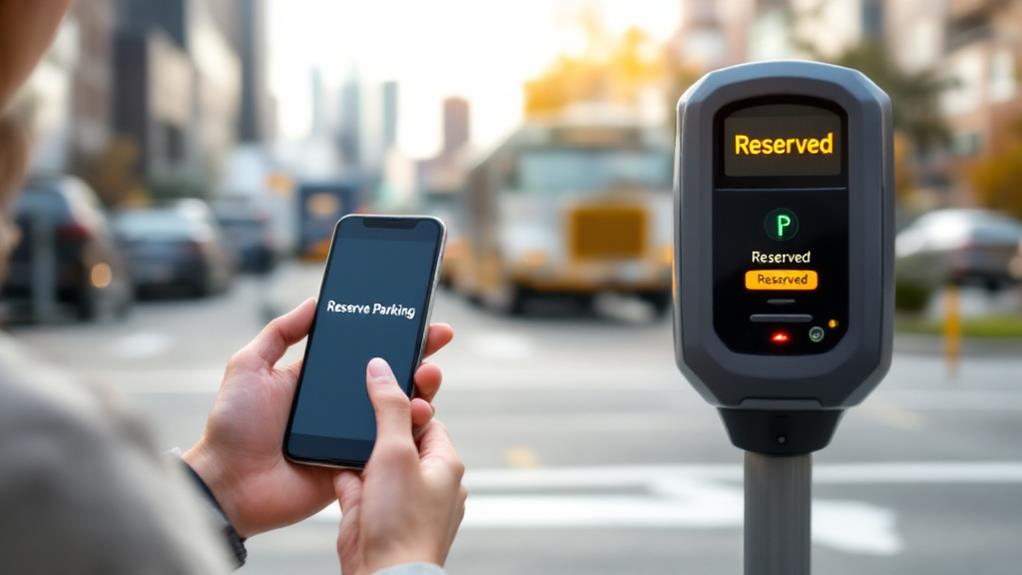
Many urban dwellers overlook a simple yet effective strategy to avoid parking tickets: reserving spots in advance. Cities like Houston offer parking reservation services that allow you to book spots before you arrive. By using apps like SpotHero, you can secure a legal parking space, eliminating the stress of searching for a spot and reducing the risk of getting a ticket.
When you reserve a spot, you'll enjoy several benefits:
- Guaranteed parking in high-traffic areas
- Access to discounted rates
- Ability to review locations, pricing, and user reviews
- Prepaid parking, saving time upon arrival
To make the most of this parking tip, start by researching available options in your destination. For example, if you're visiting the City of Houston, use a parking app to find a garage near your location. You'll be able to compare prices, read reviews, and select the best option for your needs.
Be Aware of Time Restrictions
Time is of the essence when it comes to urban parking. Street parking in urban areas often comes with strict time restrictions that you must observe to avoid costly tickets. Pay close attention to posted signs indicating the specific limits for each spot, as they can vary widely from one block to another.
Many cities impose 2-hour limits or rush hour no-parking zones, so it's imperative to plan your stay accordingly. Don't assume that weekday and weekend rules are the same; always double-check the signage every time you park. To stay on top of your parking time, consider using mobile apps that allow you to add time remotely and send alerts when your session is about to expire.
Avoid the temptation to park in the same spot all day, as this can result in multiple tickets for exceeding the posted limit. Instead, move your vehicle to a different location if you need to stay in the area longer. By being vigilant about time restrictions and using available tools to manage your parking, you'll greatly reduce your chances of receiving a ticket in urban areas.
Know Your Rights and Appeals
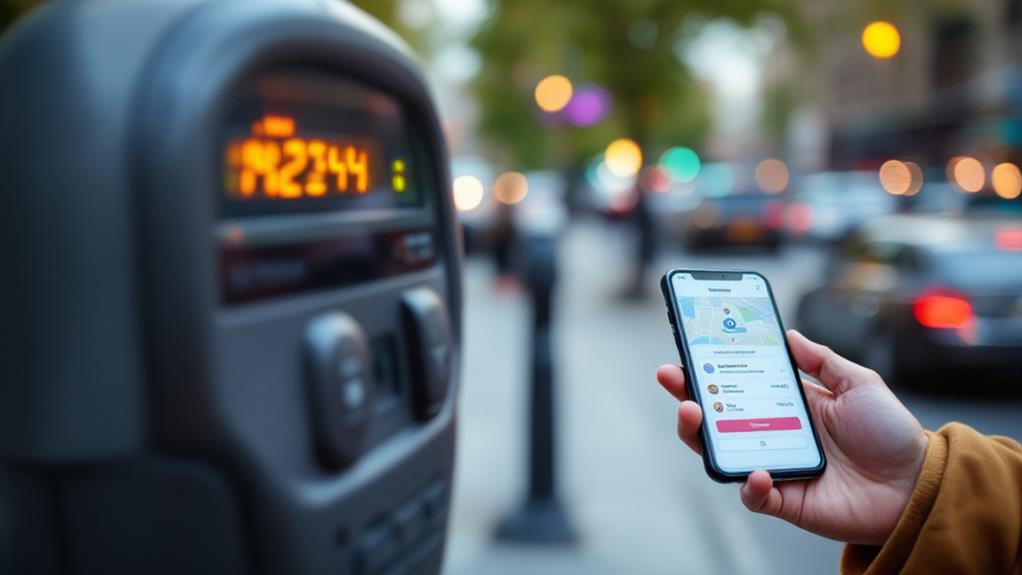
Understanding your rights and the appeals process is essential when dealing with parking tickets in urban areas. Many cities offer a one-time courtesy ticket cancellation, but remember that this is logged against your license number. It's pivotal to know that parking in a standing zone, even if you're sitting in your car, can still get you a ticket.
When contesting a ticket, consider these factors:
- Time of day: Tickets issued between 12 p.m. and 1 p.m. may be more contestable due to fewer inspectors on duty.
- Location: Parking near law courts is risky, as officers often check nearby cars.
- Shift changes: Late afternoon sees overlapping inspector shifts, increasing ticket likelihood.
- Overnight parking: After 10:30 p.m., you're less likely to receive a ticket.
If you decide to appeal, gather evidence to support your case. Take photos of any unclear signage or extenuating circumstances. Check for errors on the ticket itself, as these can sometimes lead to dismissal. Remember, while it's important to know your rights, the best way to avoid tickets is to park legally and be aware of local regulations.
